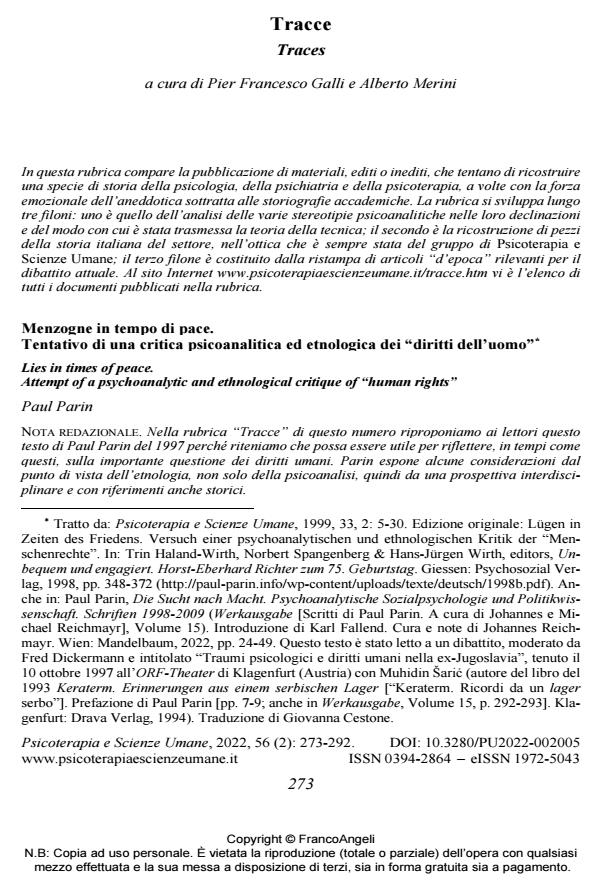Lies in times of peace. Attempt of a psychoanalytic and ethnological critique of "human rights"
Journal title PSICOTERAPIA E SCIENZE UMANE
Author/s Pier Francesco Galli, Alberto Merini, Paul Parin
Publishing Year 2022 Issue 2022/2
Language Italian Pages 20 P. 273-292 File size 161 KB
DOI 10.3280/PU2022-002005
DOI is like a bar code for intellectual property: to have more infomation
click here
Below, you can see the article first page
If you want to buy this article in PDF format, you can do it, following the instructions to buy download credits

FrancoAngeli is member of Publishers International Linking Association, Inc (PILA), a not-for-profit association which run the CrossRef service enabling links to and from online scholarly content.
After some general considerations on the topic of human rights, an analysis of the problems highlighted by two disciplines, psychoanalysis and ethnology, is attempted. The psychoanalytic viewpoint helps to understand what are the psychological aspects that favor the respect or the vio-lation of human rights; the ethnological viewpoint, instead, by comparing different cultures allows us to answer questions regarding the diversity of human rights in various social structures, their validity across different countries, and the eventual imposition or conditioning, also through the use of force, of rights other than those of a given culture. Discussing with Muhidin Sarić (author of the 1993 book Keraterm. Erinnerungen aus einem serbischen Lager [Keraterm. Memories from a Serbian concentration camp]. Preface by Paul Parin. Klagenfurt: Drava Verlag, 1994), Paul Parin tries to give an explanation of facts that are still unclear.
Keywords: Human rights; Applied psychoanalysis; Ethnology; Muhidin Sarić; Superego
Pier Francesco Galli, Alberto Merini, Paul Parin, Menzogne in tempo di pace. Tentativo di una critica psicoanalitica ed etnologica dei "diritti dell’uomo" in "PSICOTERAPIA E SCIENZE UMANE" 2/2022, pp 273-292, DOI: 10.3280/PU2022-002005